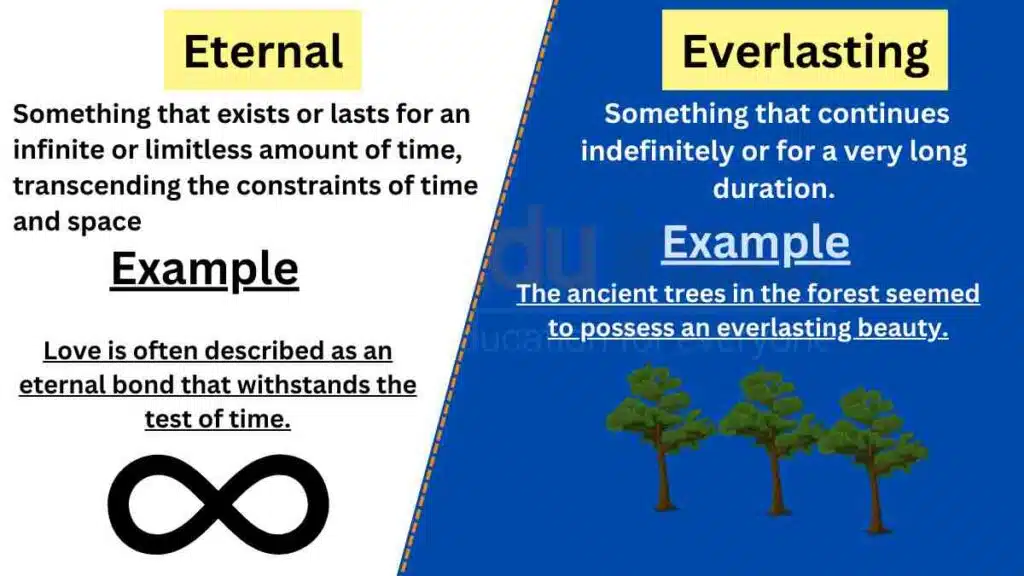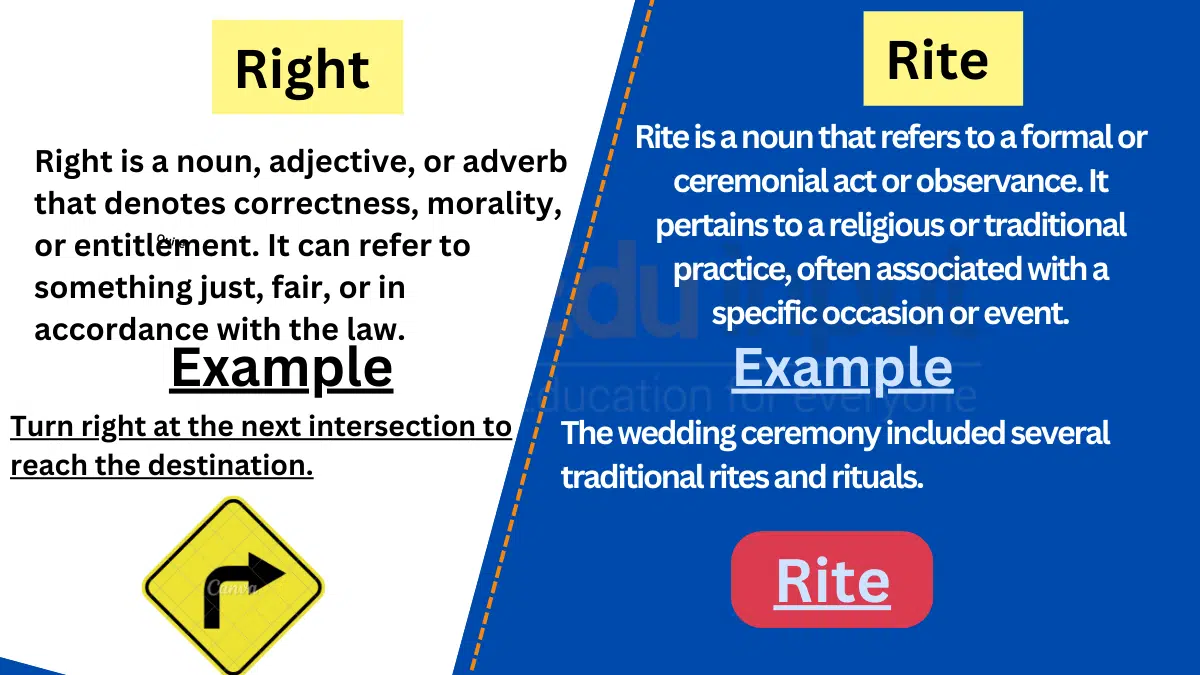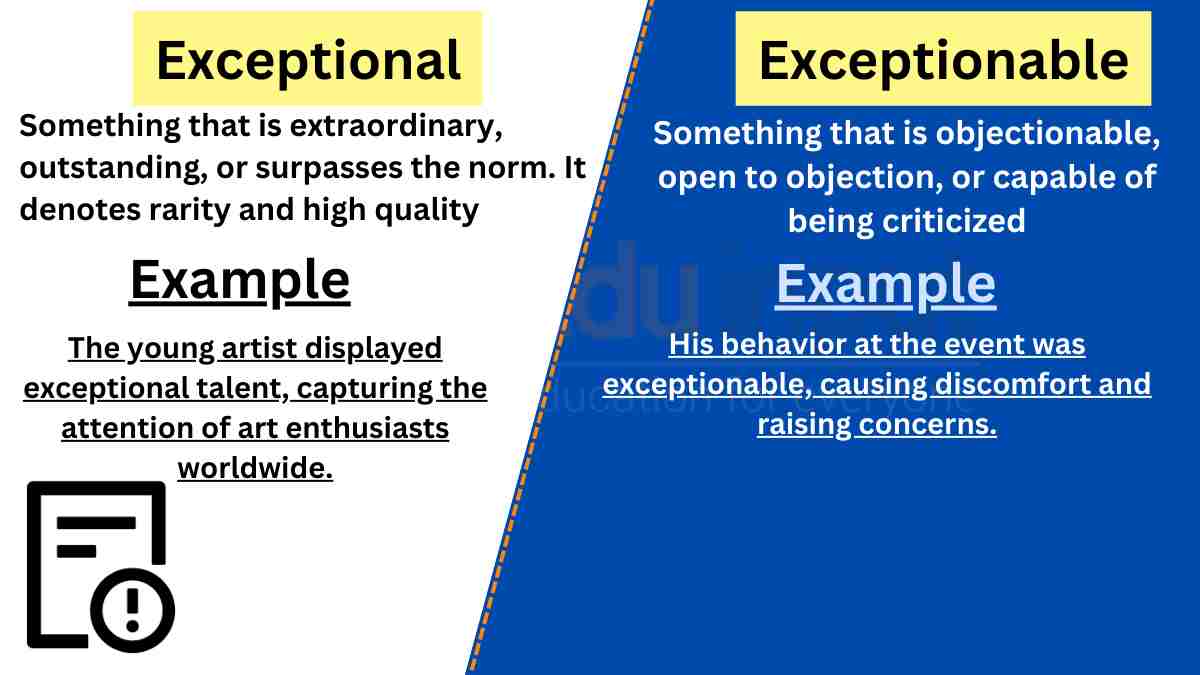Eternal vs Everlasting-Difference Between and Examples
Don’t get caught in the mix-up of “eternal” and “everlasting.” These words might seem alike, but they have slight variations in meaning. Let’s shine a light on their disparities with simple definitions, examples, and a comparison. Understand their unique nuances for precise usage and improved communication.

Meanings and Examples
Eternal Meaning
Adjective: The meaning of Eternal refers to something that exists or lasts for an infinite or limitless amount of time, transcending the constraints of time and space.
Eternal Examples
- Love is often described as an eternal bond that withstands the test of time.
- The night sky was adorned with the eternal beauty of twinkling stars.
- The ancient ruins stood as a testament to the eternal nature of human civilization.
Everlasting Meaning
Adjective: The meaning of Everlasting signifies something that continues indefinitely or for a very long duration, without an explicit implication of being timeless or without an end.
Everlasting Examples
- The sunsets at the beach provided an everlasting sense of tranquility and serenity.
- The memory of her kind words left an everlasting impact on his heart.
- The ancient trees in the forest seemed to possess an everlasting beauty.
Difference Between Eternal and Everlasting
| Eternal | Everlasting | |
| Adjective | Infinite, transcending time and space | Indefinite, continuing for a long time |
| Example | Eternal bond, eternal beauty | Everlasting tranquility, everlasting impact |
| Usage | Timeless, boundless existence | Enduring, long-lasting quality |
| Grammar | Adjective | Adjective |
Usage in a Paragraph
To grasp the nuanced difference between “eternal” and “everlasting,” let’s consider a scenario involving a beautiful sunset at the beach. As the sun slowly descended below the horizon, painting the sky in vibrant hues of orange and pink, an overwhelming sense of peace and awe washed over the onlookers. The breathtaking sight evoked a feeling of eternal beauty, as if time stood still, mesmerizing all who witnessed it. Simultaneously, the tranquil ambiance and the lasting impact on their hearts left an everlasting impression, forever etched in their memories. In this scenario, “eternal” conveys the timeless and boundless nature of the beauty, while “everlasting” captures the enduring and long-lasting quality of the impact it creates.
By discerning the distinction between “eternal” and “everlasting,” we can employ these words accurately, enriching our expression and avoiding ambiguity. “Eternal” embodies the notion of infinite existence beyond the confines of time and space, while “everlasting” denotes something enduring and continuing for a prolonged period. Understanding the subtle nuances of these words enables us to articulate our thoughts with precision and articulate the timeless or enduring aspects of various experiences.







Leave a Reply